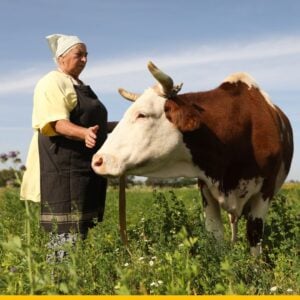The World Bank is expanding its support for Zambia’s watershed management and forest conservation through the second phase of the Transforming Landscapes for Resilience and Development (TRALARD II) project. The initiative aims to sustainably manage over 680,000 hectares of land and enhance livelihood resilience for more than 650,000 people in vulnerable communities within Zambia’s Miombo ecoregion. With an investment of $137 million, TRALARD II builds on the successes of the first phase, helping the Zambian government address highly vulnerable regions, including the Southern Province, while promoting climate-resilient livelihoods and green jobs in priority sectors.
Achim Fock, World Bank Country Manager for Zambia, highlighted that TRALARD II exemplifies how climate action can be community-driven and inclusive. The project invests in climate-smart agriculture, restores degraded landscapes, and modernizes hydrometeorological services, thereby helping communities better adapt to climate change. It also promotes sustainable rural economic activities by strengthening value chains and market access, reducing overexploitation of natural resources. TRALARD II contributes to Zambia’s National Green Growth Strategy, which guides the country’s transition toward a low-carbon, resource-efficient, resilient, and socially inclusive economy by 2030.
The project supports participatory land-use and water resource planning, improves weather monitoring and forecasting, and enhances the quality and reliability of meteorological data. It also strengthens institutional and technical capacities within the Zambia Meteorological Department and other relevant agencies. Local communities will be engaged to protect existing forest reserves and establish new Community Forest Management Groups (CFMGs). A new jurisdictional Emission Reduction Program will further build Zambia’s capacity to participate in carbon markets and generate resources to reinvest in improving rural livelihoods.
Elisson Wright, World Bank Senior Environmental Finance Specialist, emphasized that TRALARD II employs a whole-of-society approach, integrating ecological, social, and economic factors to protect ecosystems while creating economic opportunities for rural communities. The project financing includes a $100 million International Development Association (IDA) grant, along with additional grants from the Global Environment Facility, the Least Developed Countries Fund for Climate Change, the Africa Climate and People Trust Fund funded by the Nordic Development Fund, the Strategic Climate Fund/Climate Investment Fund, and the Scaling Climate Action by Lowering Emissions Multi-Donor Trust Fund.
The World Bank’s IDA, established in 1960, provides grants and low to zero-interest loans to the world’s poorest countries, supporting economic growth, poverty reduction, and improvements in living conditions. IDA has provided $563 billion to 116 countries, with annual commitments averaging $34.5 billion over the last three years, approximately 70 percent of which has gone to Africa.







